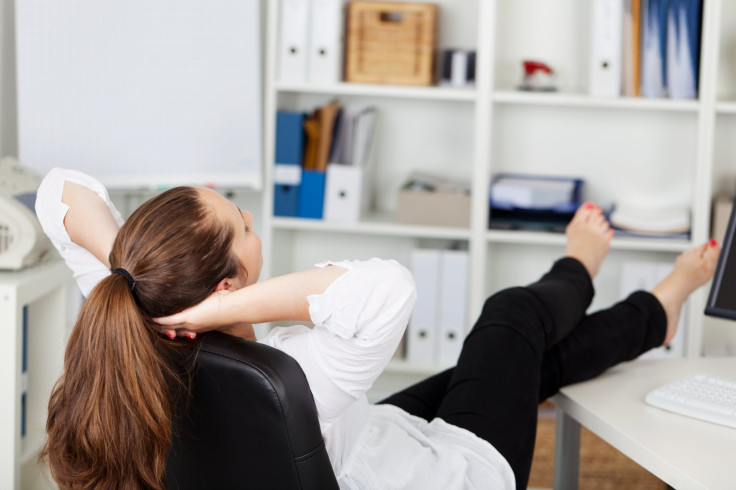'Power Poses' Will Make You Feel Powerful, But They Won't Always Change Behavior

There’s a reason every jock in every high school film out there has gone up to a girl and done the same cliché pose (you know, that one where his arm's outstretched, he’s leaning on the locker looking smug). That and other open, expansive postures are more or less known as power poses because they’re believed to exude dominance without saying a word — a 2010 study proved this. But like all science, studies will prove and disprove something on the journey toward the truth, and now, a new study suggests these power poses do much less for a person’s sense of power.
Just like male peacocks fan their feathers out to attract mates and chimpanzees puff their chests to display rank, the older study found both men and women who assumed power poses were more likely to feel confident and more willing to take risks. These poses had such an impact they were able to affect the subjects’ bodies down to the hormones they produced; testosterone levels were found to rise while those of cortisol, the stress hormone, dropped. By comparison, none of these effects occurred in people taking closed, guarded poses, like crossing their arms and slouching over.
The new study, from researchers at the University of Zurich, found that while participants felt more powerful, there was “no proof” that the poses “had any effect on their behavior or their physiology,” said study leader Eva Ranehill, from the university’s Department of Economics, in a press release.
Ranehill and colleagues replicated nearly every part of the older experiment, except for some tweaks. For one, they used nearly four times as many people (102 men and 98 women). Participants were also delegated the type of pose they should take via computer rather than from an experimenter, ensuring there was no bias on the part of either person. Once they assumed these positions, they played games meant to assess their willingness to take risks, such as gambling a smaller payment for a chance at a larger one. And just like the older study, they had saliva samples taken before and after the experiments.
Participants striking a power pose reported feeling more powerful at the end of the study. However, the researchers found there was no effect on their inclination to take more risks in the games, something Ars Technica notes may have just been a result of experimenting with the wrong kinds of tasks — feeling powerful might affect other things than a person’s sense of competition and risk taking. There was also no effect on participants’ hormone levels, even when the researchers controlled for people who felt uncomfortable in their powerful or powerless positions.
The researchers hailed their study as “much more meaningful” because it included more data. However, certain aspects of the study could have had major effects on the results. For example, using computers to instruct participants on the poses they should take may have had a negative effect — person-to-person interactions are after all much different. The study was also conducted in a different country, making it possible cultural differences affected results. More research that tweaks all of these factors will be necessary before we can conclude whether these poses truly affect behavior and physiology.
Source: Ranehill E, Johannesson D, Leiburg S, et al. Assessing the Robustness of Power Posing: No Effect on Hormones and Risk Tolerance in a Large Sample of Men and Women. Psychological Science. 2015.



























